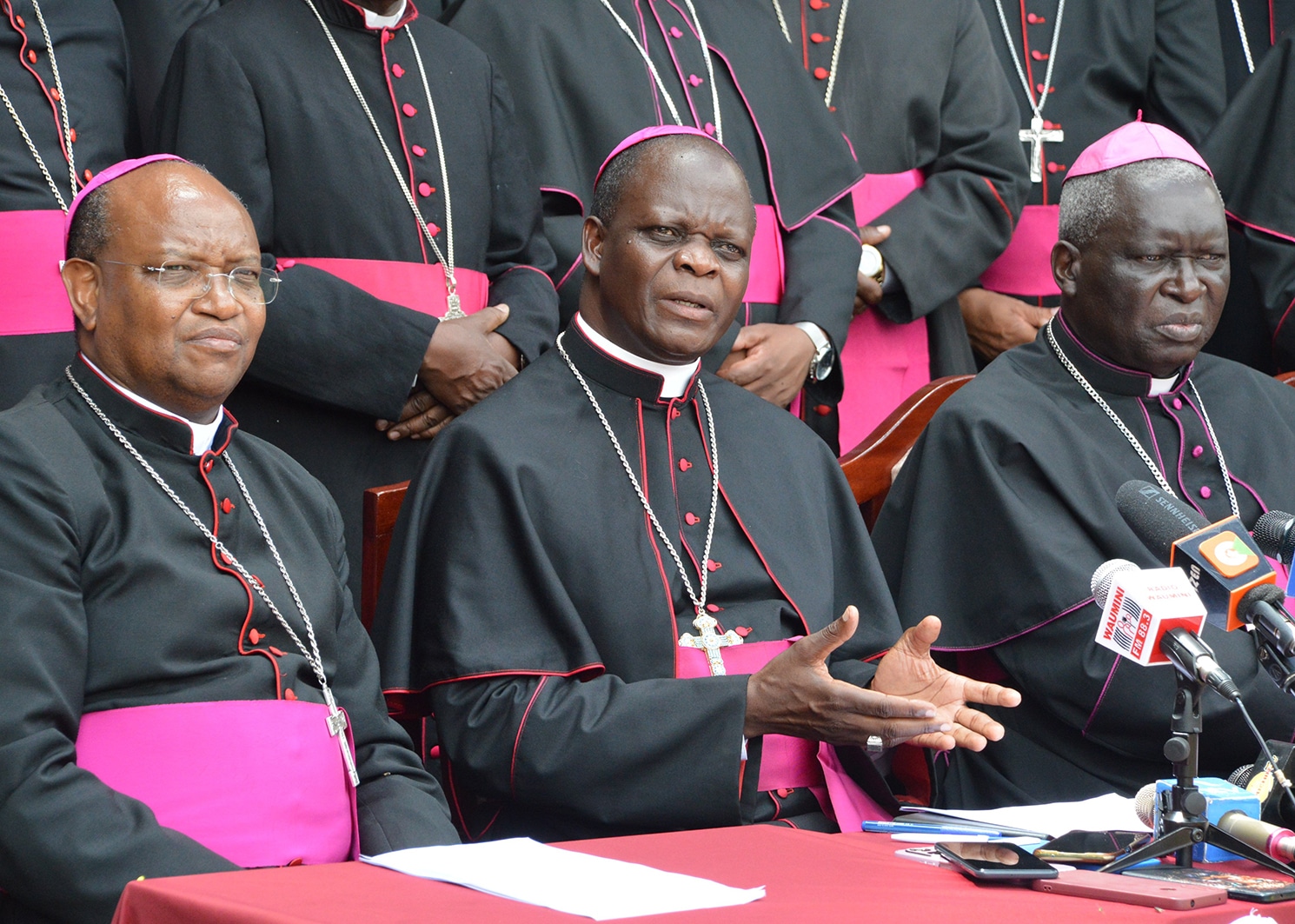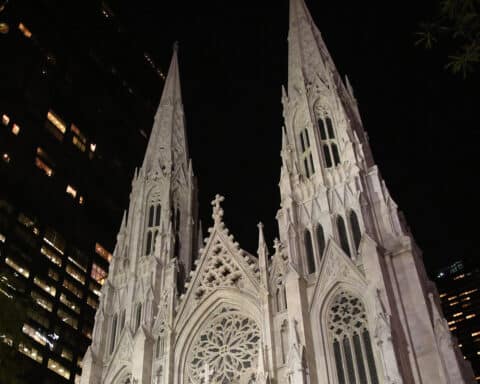NAIROBI, Kenya (OSV News) — Catholic bishops in Kenya have criticized what they see as government interference in schools and hospitals owned by the Church, while underlining their right to manage the institutions.
The bishops spoke at a news conference in Nairobi on April 11, where they addressed a range of issues, including education, the unreasonable cost of missionary work permits and crippling debts of hospitals incurred through the National Health Insurance Fund.
The bishops expressed their concern about the changing dynamics of the relationship between the Church and the government.
Kenyan government interference criticized
“We are concerned about the deliberate intent to reduce and undermine the role of the Catholic Church, and indeed all faiths as safeguards of morality in society. We especially decry this subversion in the fields of education and health,” Archbishop Maurice Muhatia Makumba of Kisumu, the newly elected president of the Kenyan bishops’ conference, told the news conference.
According to the bishops, in a proposed Basic Education Bill 2024, the government had breached the original arrangement between the Church and the state on how education institutions founded by the Church were to be managed.
“Our history is very clear, that many of these institutions were established by our missionaries, who worked tirelessly and with great sacrifice, to set them up, and nurtured them for many years,” said Archbishop Makumba, who read part of April 11 bishops’ statement, issued after plenary meeting of the conference.
The Catholic Church in Kenya controls 31% of the country’s education sector and owns over 7,000 schools — a number that did not change since the 2015 statistics were published. This includes 5,821 primary schools, 2,513 early childhood development schools, 220 vocational training centers and 21 teacher training colleges.
“This has given our Country great leaders and forged the moral fabric of our Kenyan society,” the bishops’ statement read.
Call for protection of Church role in education
“We, therefore, decry and reject the systematic scheme to undermine and weaken our management role as the founders of the Catholic-sponsored schools,” said Archbishop Makumba.
In November 2018, former president Uhuru Kenyatta ordered the restoration of the schools that were Church owned, the return of the land the institutions occupied and the full restoration of the Church’s sponsorship.
The bishops also expressed concern April 11 about a new law that grants the ministry of education unilateral powers to dissolve, merge, convert or amalgamate private universities, including faith-based ones.
The bishops also criticized an exorbitant rise in the work permit fees for missionaries. Initially, the missionaries paid the equivalent of $115 but are now being required to pay ten times more — almost $1,154.
“This is absolutely unethical and shows lack of gratitude to people dedicating their lives to the good of society,” said Archbishop Anthony Muheria of Nyeri, while reading part of the bishops’ statement.
He called for waivers for priests, religious men and women, and other social missionary volunteers who come to “complement our social engagement.”
“We request that their work permit be zero-rated,” he said.
Financial challenges for hospitals
The Church-run hospitals also are in trouble.
Since Kenya’s independence in 1963, the institutions have complemented the government’s efforts to deliver health services to the most needy, but are being “crippled” by the government failure to remit huge amounts they owe the National Hospital Insurance Fund, according to the bishops.
“As of now, this has accrued to over 2 Billion Kenya shillings ($16 million). The effect is that most of our hospitals are crippled and not able to operate optimally, and therefore offer services to the needy. In fact, many are now unable to procure medicines and pay salaries,” said Archbishop Muheria.
The Catholic Church is a key stakeholder in health services, running an expansive network that consists of 451 health units, including 69 hospitals, 117 health centers, 14 medical training colleges, and 251 dispensaries. There are also 46 community-based health and orphaned and vulnerable Children centers — all of which constitute 30% of all healthcare facilities in Kenya.
The news conference also addressed the high cost of living and the over taxation, which had made life extremely difficult for most ordinary citizens and an ongoing doctor’s strike, which started in mid-March.
The bishops said that while the doctors’ demands were “merit-worthy,” the medics should put life and interests of patients first.
“The life of a human person should never be used as a bargaining currency. Every life is worth more than any financial or employment gain,” said Archbishop Muheria.
Message of resilience and support
He urged the government, the doctors and clinical officers to seek a working arrangement to avoid loss of lives.
Meanwhile, the bishops encouraged Kenyans to remain resilient, while affirming their commitment to always walk with them.
“The resilience of Kenyans to withstand adversities ranging from the cost of living, weather conditions or sickness, has always stood out. This hope and positive attitude largely comes from our faith in God,” said Archbishop Makumba.





